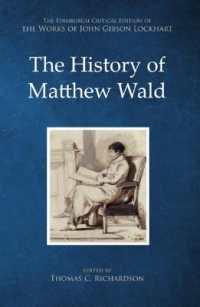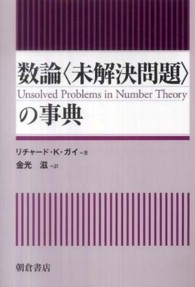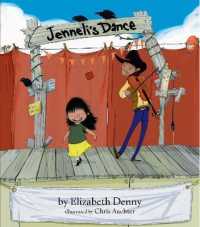Full Description
This book explores the boundaries of the category of gender and their theoretical significance within the framework of Canonical Typology. Grammatical gender is a famously puzzling category: although it has been widely explored from a typological perspective, studies are constantly identifying exciting and unexpected patterns in gender systems, many of which cannot be easily classified or straightforwardly analysed. Some of these patterns stretch or even threaten to cross the largely unexplored outer boundaries of the category.
In the canonical approach, morphosyntactic features like gender are established in terms of a canonical ideal: the clearest instance of the phenomenon. The canonical ideal is a clustering of properties that serves as a baseline to measure the actual examples observed. In this volume, international experts use this approach to analyse a range of gender systems that diverge from the canonical ideal, and to determine to what extent each component property of these systems can be considered canonical. Chapters explore a wide range of typologically diverse languages from all over the world, from South America to Melanesia, and from Central Italy to Northern Australia. The book will be of interest to all linguists working in the field of typology, from graduate level upwards, as well as to morphologists and syntacticians of all theoretical stripes who have an interest in grammatical gender.
Contents
1: Jenny Audring & Sebastian Fedden: Introduction
2: Greville G. Corbett & Sebastian Fedden: New approaches to the typology of gender
3: Michael Franjieh: North Ambrym possessive classifiers from the perspective of canonical gender
4: Bernhard Wälchli: The rise of gender in Nalca (Mek, Tanah Papua): the drift towards the canonical gender attractor
5: Ruth Singer: The role of flexibility in a more integrated typology of nominal classification
6: Ellen Contini-Morava & Eve Danziger: Non-canonical gender in Mopan Maya
7: Tania Paciaroni & Michele Loporcaro: Overt gender marking depending on syntactic context in Ripano
8: Francesca Di Garbo & Yvonne Agbetsoamedo: Non-canonical gender in African languages: A typological survey of interactions between gender and number, and between gender and evaluative morphology
9: Françoise Rose: A typology of languages with genderlects and grammatical gender

![The Deck [LP 16 Pt Edition] (Large Print)](../images/goods/ar/work/imgdatag/10387/1038774489.JPG)






